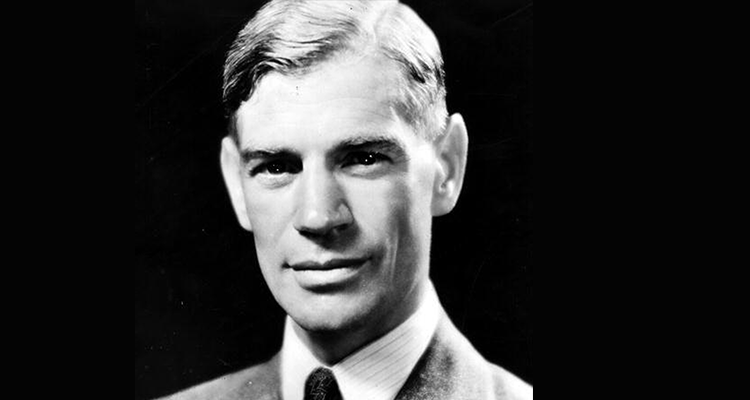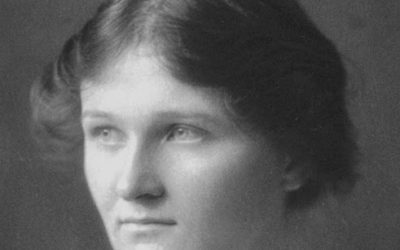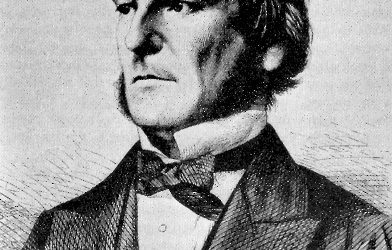Hollywood has always been many things to many people, a “dream factory” where countless stories and influences from around the world are transformed into films that flow back into the world and influence it in turn. Like the people who make its films, Hollywood has exhibited a diverse panorama of moods and styles. One of its most popular and enduring, although deplored by many as lowbrow, is the campy style of B-movie horror that began in the 1930s and lasted through the 1950s. And it happens that the pioneer of this style was also a pioneer in the social world, the openly gay film director James Whale.
Whale was an outsider to Hollywood in many ways, born to a poor family from the industrial town of Dudley in the West Midlands of England. His father worked as a blast furnaceman and his mother as a nurse, and Whale himself began his career as a cobbler. He had no experience in the theater until his mid-twenties, and then under very unusual circumstances. With the outbreak of World War I he had enlisted early and had fortunately been able to go through officer training; later, near the end of the war he was captured and sent to a German POW camp in Holzminden. With little else to do, he and his fellow prisoners staged several amateur theatrical productions, an undertaking that Whale found he enjoyed immensely. And when the war was over, he used money that he had won in prison poker games to fund a budding artistic career.
From that point on Whale’s trajectory follows a familiar pattern: first acting in the theater, then directing theatrical productions, and finally coming to the attention of Hollywood producers in America. His first big project was a film version of Journey’s End, a successful theatrical production he had put on in the U.K., and soon after that he signed a five-year directing contract with Universal Pictures. Whale was offered his pick of properties to direct, and he made a fateful choice: the horror classic Frankenstein.
Whale actually directed movies in many styles, including what is now considered the best film version of the musical Show Boat; it just so happens that his flair for horror was so strong that movies like Frankenstein, The Invisible Man and Bride of Frankenstein are remembered while Whale’s other efforts (along with most movies from that time) have been forgotten. Whale had a knack for casting talented but obscure actors, choosing the practically unknown British actor Boris Karloff to play Frankenstein and also giving Claude Rains his first big break in Hollywood, as the voice of the Invisible Man. His taste in set design and cinematography was also striking and exceptional, taking cues from German Expressionist film and marrying them to the older aesthetic of Gothic horror. A single minor detail from one of his movies, the “lightning bolt” haircut worn by Elsa Lanchester in Bride of Frankenstein, has become so iconic that dozens of fictional characters and real-life Halloween costumes have imitated it.
Whale was remarkable for more than his aesthetic. He made no bones about his homosexuality, living in Hollywood with the film producer David Lewis throughout the ‘30s and ‘40s. Some critics have speculated that it was this that eventually ended his film career, although conflicts with producers and a few major flops likely had more to do with it. While several other prominent directors from that period, notably George Cukor, are now known to have been gay, few were willing to jeopardize their careers or social lives by being frank about it.
Yet he also didn’t allow himself to be pigeonholed or defined by his sexuality; while several modern critics have analyzed his work from a gay perspective, it has a broader appeal that stems from craftsmanship and attention to detail. Whale’s films are known and loved by millions who hardly know his name, let alone the details of his personal life. And it’s likely that, as an artist, he did not and would not care what his viewers thought about him personally; what mattered to him was the work itself.
James Whale was a unique figure in Hollywood in many ways: his family background, his approach to filmmaking and his taste in actors as well as his sexuality. To quote his partner David Lewis:
“Jimmy was first and foremost an artist, and his films represent the work of an artist—not a gay artist, but an artist.”
Next Post: Maria Bergson, the secretary turned industrial designer who stood the test of Time.














